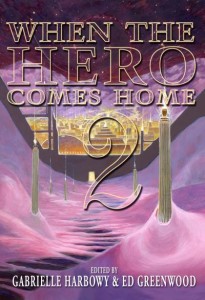 Many of us have had them in real life–those troublesome friends.
Many of us have had them in real life–those troublesome friends.
Some of them are the people who can be tons of fun one day, and kind of mean the next. Some of them are people we want to associate with because they’re popular, or well-regarded, or “cool” in a way that we want to be, and we want the cachet that knowing them can bring, even if we think they can be jerks sometimes. Maybe we’re “friends” with them even though we don’t like them, because they’re bullies and it’s much better to be their friend than their target. Or maybe we’re somewhere where there just aren’t a lot of people to choose from, and we either have to put up with the troublesome friend or accept that we’re going to be doing a lot of things alone.
Most of us are familiar with the archetypal story set-up: the hero, her sidekick(s), the villain, his army. In the idealized version of the story, the sidekick is the perfect best friend we all wish we had: someone who cares about us unconditionally, supports us, has strengths that compliment ours, admires us, likes us. Most of us are familiar with the kind of tension that exists between hero and villain. But what about when the hero’s sidekick is not the perfect best friend? What about when there’s tension on the “good guy side?”
Most people–even jerks–behave the way they do for a reason. Building your characters’ backstories can help you identify sources of tension between people who are allegedly on the same side. Maybe your hero reminds your sidekick of someone who wasn’t nice to him in the past, and it colours his perception of her. Maybe your hero and your sidekick come from groups (countries, cultures, social classes, religions…) who are historically enemies, and they’re suspicious of one another. Maybe your sidekick is keeping a secret and will do anything–even things that seem like random nastiness–to keep that secret, feed that addiction, hide that aspect of their nature. Or maybe your sidekick just wants to be a hero (knight, pop star, etc) so badly that he’s willing to do whatever it takes to hang out with a hero who is not really all that nice to him.
If there’s a lot of tension, why do the sidekick and the hero even bother hanging out any more? There’s two ways to make this story plausible. Maybe the things that they like about each other are–so far–outweighing the things they don’t like about each other. Or maybe circumstances are such that they can’t leave. They’re stuck together on a starship in deep space, or in a treacherous mountain pass where travelling alone is suicide, or they’ll forfeit their inheritances if they don’t see this mission through together.
We’d all love to have the perfect best friend, and there’s definitely a place for wish fulfillment in fiction. But the experience of having to get along with someone we may not particularly like is almost universal. Writers can build complex relationships that explore some of the difficulties that people who are allegedly friends can experience with one another. Tension doesn’t have to be romantic or sexual in nature, nor does it have to come from the “enemy” side.
